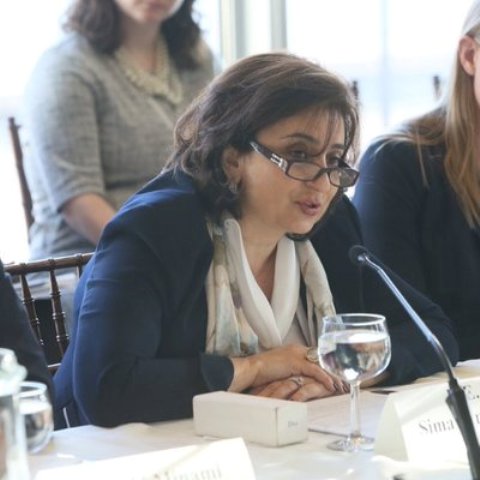Dr. Sima Bahous Reappointed as UN Women Executive Director for Second Term
Her renewed mandate comes at a pivotal moment for global gender equality efforts, as UN Women advances its newly endorsed Strategic Plan 2026–2029.

Dr. Sima Sami Bahous, an accomplished diplomat from Jordan and experienced United Nations leader, has been reappointed by UN Secretary-General António Guterres to serve a second term as Under-Secretary-General and Executive Director of UN Women. Her renewed mandate comes at a pivotal moment for global gender equality efforts, as UN Women advances its newly endorsed Strategic Plan 2026–2029.
A Renewed Commitment to Women and Girls
In response to her reappointment, Dr. Bahous expressed gratitude and determination:
“I am honoured to continue to serve as Executive Director and pledge my utmost efforts to UN Women delivering its crucial mandate for all women and girls everywhere.”
During her first term, Dr. Bahous emphasized embedding gender equality across intergovernmental processes, strengthening UN Women’s country-level impact, and ensuring that women’s rights and protection are prioritized in crisis responses.
Leadership and Experience
Dr. Bahous brings decades of experience in diplomacy, development, and UN leadership. Before joining UN Women in 2021, she served as Jordan’s Permanent Representative to the United Nations, held senior roles with UNDP, and played a key role in promoting sustainable development and regional cooperation in the Arab States.
Her leadership at UN Women has been defined by transparency, efficiency, and measurable results, with a strong focus on ensuring that global commitments translate into tangible improvements for women and girls on the ground.
Centrality of Gender Equality in the SDGs
With UN Women’s Strategic Plan 2026–2029 now approved, Dr. Bahous reiterated the importance of gender equality as a foundation for achieving the Sustainable Development Goals (SDGs):
“We know what happens when men and women share power and decision making, when men and women contribute equally to economies, when women and girls are not brought down by violence or the evils of conflict and crisis and instead play their fullest part in our human family. Equality must not wait.”
She credited UN Women staff worldwide for their dedication and commitment, describing them as a “team of talent, passion, commitment and expertise.”
Priorities for the Second Term
Looking ahead, Dr. Bahous outlined her vision for UN Women’s next chapter, shaped by the challenges of an increasingly complex international landscape:
-
Strengthening UN Women’s role in crises: Ensuring women and girls are protected and supported during humanitarian emergencies, armed conflicts, and climate-related disasters.
-
Sharpening focus on accountability and results: Demonstrating clear, measurable impacts of UN Women’s work at community and national levels.
-
Advancing UN reforms with a gender lens: Supporting broader UN reform processes to ensure women’s rights remain central in decision-making and programming.
-
Building stronger partnerships: Expanding collaboration with governments, civil society, the private sector, and youth-led organizations to drive systemic change.
“The multilateral space is more complex than ever, and the challenges it faces more difficult. That is why the centrality of gender equality and the role of UN Women are more important than ever,” she said.
A Global Role in Turbulent Times
As global crises — from armed conflict to climate shocks — disproportionately affect women and girls, Dr. Bahous’s second term will focus on ensuring that gender equality is not sidelined, but rather positioned as a driving force for peace, resilience, and inclusive development.
Her reappointment signals continuity in leadership at a time when UN Women is tasked with amplifying its role in both advocacy and operational impact, bridging global policymaking with local realities.










